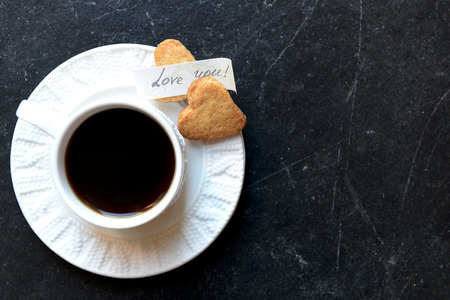Introduction to British Hospitality
When it comes to welcoming guests into the home, few cultures take the art of hospitality as earnestly as the British. Steeped in centuries of tradition, British hospitality is not merely a matter of politeness; it reflects deep-rooted values of warmth, respect, and community spirit. While tea has long been recognised as the quintessential British beverage, coffee has steadily woven itself into the fabric of modern British home life. Today, offering coffee to guests is both a gesture of consideration and a reflection of contemporary tastes. Understanding how coffee fits into these traditions provides valuable insight into British culture—where making someone feel at home is an act imbued with care and subtle ritual.
2. The Coffee Invitation: Setting the Scene
Welcoming guests into your home for coffee is a cherished tradition in British culture, blending warmth and etiquette with a sense of genuine hospitality. The invitation itself sets the tone for the gathering, so clarity and thoughtfulness are key. When inviting friends or neighbours, a simple message—be it via text, a phone call, or an in-person chat—suffices, but make sure to mention the purpose (“Would you like to pop round for a cup of coffee?”), the date and time, and any other relevant details (such as dietary preferences or if children are welcome).
Setting expectations is equally important. A typical British coffee gathering is relaxed and informal, often taking place in the kitchen or living room. Let your guests know what to expect: “We’ll just have a natter over some coffee and biscuits,” helps set a friendly, low-pressure atmosphere. If you’re planning something more elaborate—perhaps homemade cakes or an afternoon treat—mention this in advance.
Preparing your home doesn’t require grandeur; rather, it’s about comfort and care. Ensure seating is arranged to encourage conversation, tables are clear for mugs and plates, and the environment feels tidy yet lived-in. Scented candles or fresh flowers can add a welcoming touch, but never at the expense of making guests feel they must be on their best behaviour.
Checklist: Preparing for Your Coffee Guests
| Task | Why It Matters |
|---|---|
| Send clear invitations | Avoids confusion and helps guests feel valued |
| Tidy main rooms | Makes guests comfortable without feeling too formal |
| Arrange seating | Encourages easy conversation |
| Check supplies | Ensures enough coffee, milk, sugar, and treats for all |
| Add personal touches | Makes the setting feel warm and intentional |
The essence of British hospitality lies not in lavish spreads but in thoughtful preparation and sincere welcome. By setting the scene with care—both through your invitation and your home—you lay the foundation for meaningful connection over a humble cup of coffee.

3. Selecting and Preparing Coffee: A British Approach
When it comes to serving coffee at home in Britain, there is a distinctive approach that blends tradition with modern preferences.
Popular Types of Coffee in the UK
While tea remains a national favourite, coffee has steadily gained ground, particularly in social settings. The classic instant coffee still holds a special place in many British households for its convenience and nostalgia. However, freshly brewed filter coffee and cafetière (French press) coffee are increasingly popular, especially when entertaining guests. Espresso-based drinks such as lattes and cappuccinos have also become common, inspired by high street café culture but adapted for home use.
Sourcing Quality Ingredients
The key to memorable hospitality lies in choosing quality ingredients. Many Brits now seek out locally roasted beans or reputable supermarket brands that offer Fairtrade or Rainforest Alliance certifications. Whole beans tend to provide a fresher flavour when ground just before brewing, but pre-ground coffee is widely used for its ease. For those preferring instant coffee, premium brands with richer blends can elevate the experience for guests.
Brewing Tips for the British Home
Most British homes are equipped with a kettle, making both instant and cafetière coffee straightforward options. When using a cafetière, it’s recommended to use freshly boiled water that has cooled slightly (around 92–96°C) to avoid scalding the grounds and creating bitterness. Measure one heaped tablespoon of ground coffee per cup, stir after adding water, and allow it to brew for four minutes before pressing gently. For filter machines, following the manufacturer’s instructions ensures consistency, while pod machines are growing in popularity for their convenience and minimal clean-up.
A Note on Milk and Alternatives
British preferences often lean towards adding milk—semi-skimmed is standard, though oat and other plant-based milks are now commonly offered for guests with dietary requirements.
Final Thoughts on Preparation
The heart of British hospitality is in the thoughtful attention to detail—whether sourcing fresh beans from a local roastery or simply ensuring the water is at the right temperature, these small gestures make all the difference when welcoming someone into your home.
4. The Art of Presentation
When it comes to British hospitality, the experience of serving coffee goes well beyond the brewing itself. A thoughtful presentation is a subtle gesture that speaks volumes about your care for guests. Start with choosing the right cups: in many UK homes, a set of classic porcelain or stoneware cups is kept for special occasions. Matching saucers are more than tradition—they help catch drips and allow space for a spoon or a biscuit.
Choosing Your Serving Ware
Selecting the right vessel sets the tone for your gathering. If you have more than one guest, aim for uniformity in cup style and size; mismatched mugs might be charming in casual settings but can feel less considered during more formal visits. For an added touch, pre-warm the cups with hot water before pouring coffee, ensuring each serving stays at an ideal temperature.
Arranging Accompaniments
The artful arrangement of accompaniments is where British hospitality shines. Biscuits are almost obligatory—shortbread, digestives, or rich tea biscuits are perennial favourites. Small cakes or slices of loaf cake also make welcome additions, particularly if you know your guests’ preferences. Arrange these on a platter or tiered stand to add a sense of occasion.
| Accompaniment | Traditional Choices | Modern Twists |
|---|---|---|
| Biscuits | Shortbread, Digestives, Rich Tea | Oat biscuits, Vegan options |
| Cakes | Victoria Sponge, Lemon Drizzle | Brownies, Gluten-free bakes |
Creating the Atmosphere
A relaxed yet refined atmosphere is key. Lay out a clean tablecloth or placemats, and consider using a small vase of seasonal flowers to brighten the table without overwhelming it. Offer milk and sugar in matching pots so guests can adjust their drinks to taste—a little jug of warmed milk is particularly appreciated. Ensure everyone has easy access to napkins and cutlery if needed.
The Subtle Details Matter
Finally, remember that small touches make a lasting impression: stirrers should be clean and neatly arranged; any used spoons should be cleared discreetly. Even in informal settings, these gestures show thoughtfulness and respect for your guests’ comfort.
5. Conversation and Etiquette Around the Coffee Table
One of the most cherished aspects of British hospitality is the ritual of conversation that naturally unfolds around the coffee table. Unlike more transactional encounters, offering coffee at home is as much about sharing moments as it is about serving a drink. The art lies in balancing warmth, attentiveness, and subtlety—a dance that reflects the nuanced traditions of British etiquette.
Polite Conversation: The Foundation
When guests are gathered, hosts typically initiate polite conversation with gentle topics—weather, recent news (steering clear of controversy), or light anecdotes. The British knack for understatement shines here; conversation is rarely boastful or intrusive. Rather, it’s about creating a comfortable atmosphere where everyone feels included. It’s important to listen actively, nodding along and responding thoughtfully, demonstrating genuine interest in guests’ remarks.
The Role of Small Talk
British small talk is an art form in itself, often underpinned by humour and modesty. It acts as social lubrication, easing introductions and defusing any awkwardness. Remarks about how well the coffee has been made or observations on the quality of biscuits can spark cheerful exchanges. Remember: while small talk may seem superficial, it is a sign of respect and consideration for one’s guests.
Guest-Host Etiquette
The host should offer coffee promptly after seating guests, checking preferences discreetly—milk or sugar, perhaps a splash of oat milk for the health-conscious. Cups are served from the guest’s right-hand side if possible, and refills are offered but never insisted upon. Hosts avoid hovering but remain attentive to empty cups or signs that a guest might like more. Guests, in turn, show appreciation by complimenting the brew or expressing gratitude for the thoughtful gesture. It’s customary for guests to wait until everyone is served before taking their first sip.
In all things, the focus remains on mutual comfort and enjoyment. A well-hosted coffee gathering isn’t measured by the finery of china or complexity of beans but by the ease with which conversations flow and connections are nurtured. This is the heart of British hospitality—a quiet confidence that transforms a simple cup into a memorable experience.
6. Accommodating Guest Preferences
British hospitality is rooted in making everyone feel welcome and cared for, and this is especially true when serving coffee to guests at home. A thoughtful host will always consider the dietary needs and preferences of their visitors, ensuring that no one feels left out or uncomfortable. Begin by asking your guests how they take their coffee—this small gesture speaks volumes about your attentiveness. Some may prefer their coffee black, while others enjoy it with milk or sugar. In recent years, its become increasingly common in the UK to offer a variety of milk alternatives such as oat, almond, or soy milk alongside traditional dairy options. Keeping these on hand demonstrates sensitivity to both dietary restrictions and lifestyle choices.
It’s also wise to provide alternative drinks for those who don’t drink coffee or are sensitive to caffeine. Popular British alternatives include herbal teas, decaffeinated coffee, or even a comforting mug of hot chocolate. If you know in advance about specific allergies or intolerances—such as lactose intolerance or nut allergies—take care to check ingredient labels and avoid cross-contamination. Presenting these options openly, perhaps by arranging them neatly on a tray or clearly labelling them, helps guests feel at ease in making their choice without fuss.
Ultimately, the art of British hospitality lies in these considerate touches: remembering a regular guest’s favourite drink, quietly providing non-dairy milk for a vegan friend, or having a gluten-free biscuit ready for someone with coeliac disease. These details create an inclusive atmosphere where every guest feels truly valued and welcome in your home.
7. The Lasting Impression: Wrapping Up and Farewells
As your coffee gathering draws to a close, the way you bid farewell to your guests is just as significant as your initial welcome. In the tradition of British hospitality, ending the occasion with warmth and genuine appreciation leaves a lasting impression that extends beyond the final sip of coffee. Begin by offering a gentle prompt that signals the winding down of the visit—perhaps a soft “Shall I get your coats?” or “It’s been such a pleasure having you.” Such cues are both polite and clear, allowing guests to prepare for departure without feeling rushed.
Expressing Appreciation
Always take a moment to thank your guests sincerely for their company. A simple, heartfelt “Thank you so much for coming” goes a long way. If someone brought a small gift or contributed in any way, acknowledge it specifically: “The biscuits you brought were absolutely lovely.” This attention to detail reflects both gratitude and attentiveness, hallmarks of British courtesy.
Offering One Last Comfort
Before they leave, offer one final comfort—a refill of water, assistance gathering their belongings, or even wrapping up an extra homemade treat “for the road.” These gestures reinforce your care and consideration, ensuring guests feel looked after right until the very end.
The Goodbye Ritual
The farewell itself should be unrushed. Walk your guests to the door and exchange warm goodbyes. In British culture, this often includes phrases like “Safe journey home,” or “Let’s do this again soon.” If appropriate, a friendly wave from the doorstep as they depart adds a personal touch. By seeing them off in this manner, you solidify a sense of belonging and community.
Leaving a Memorable Experience
The art of concluding a gathering lies in making every guest feel valued and welcome to return. When you blend thoughtful farewells with genuine gratitude, you not only uphold the best traditions of British hospitality but also create memories that linger long after the coffee cups have been cleared away.


